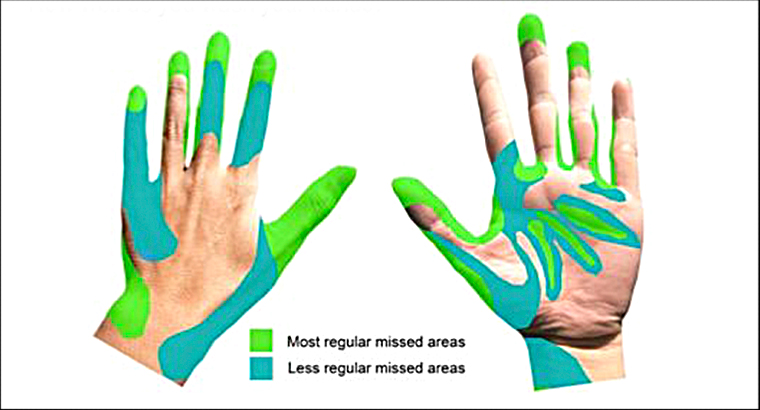News
Global Handwashing Day: Clean hands are a recipe for health
To mark Global Handwashing Day, the Food Safety Information Council has launched tips on how to keep hands clean to help reduce the 4.1 million cases of food poisoning in Australia each year.
 Washing hands can prevent the spread of infections from GP to patient, between patients, and from patient to GP.
Washing hands can prevent the spread of infections from GP to patient, between patients, and from patient to GP.
When washing hands, it is imperative to sing ‘Happy Birthday to you’.
Because the 20 seconds it takes to mouth those lines – though perhaps not aloud – is the optimum time needed to properly wash and dry hands, according to the Food Safety Information Council (FSIC).
Monday 15 October marks Global Handwashing Day and the FSIC’s theme – Clean hands – a recipe for health – focuses on the links between handwashing and food.
FSIC Chair Rachelle Williams described thorough handwashing as one of the keys to reducing the 4.1 million cases of food poisoning in Australia each year.
‘We are encouraging every Australian household, school and workplace to download our handwashing posters, print them out and put them where they are noticeable in kitchens and bathrooms,’ Ms Williams said.
‘We have designed two posters, one for adults and one for children, and, in both cases, we suggest singing “Happy birthday to you” so you can time the 20-second period you need to wash and then dry your hands.’
 Thorough handwashing has been described as one of the keys to reducing the 4.1 million cases of food poisoning in Australia each year. (Image: Food Safety Information Council)
Thorough handwashing has been described as one of the keys to reducing the 4.1 million cases of food poisoning in Australia each year. (Image: Food Safety Information Council)
FSIC tips on how to wash hands correctly include:
- wet your hands and rub together well to build up a good lather with soap, as the suds help to loosen the bugs. Do this for at least 20 seconds and don’t forget to wash between your fingers and under your nails
- rinse well under running water to wash away the bugs from your hands
- dry your hands thoroughly on a clean towel for at least 20 seconds – a hand dryer may take a little longer.
Always wash and dry your hands:
- before handling, preparing and eating food
- after touching raw meat, fish, shell eggs or chicken
- after using the toilet, attending to children’s (or others) toilet use and changing nappies
- after blowing your nose
- after touching a pet.
And do not touch sores, wounds and cuts when handling and preparing food.
Associate Professor Mark Morgan, Chair of the RACGP Expert Committee – Quality Care, told
newsGP that handwashing can prevent the spread of infections from GP to patient, between patients, and from patient to GP.
He said improper hand-hygiene is a conduit for viral or bacterial infections, causing influenza, upper respiratory tract infections and the spread of multi-resistant bacteria from person to person.
‘There are two or three effective things that can reduce the transmission of infection,’ Associate Professor Morgan said.
‘You can use alcohol-based handwash, so the non-soap-and-water version, or the soap and water version, and then there would be using gloves.
‘But no method is 100% effective and the recommendation is that you do a combination of washing and using the gloves.’
Associate Professor Morgan said GPs should also wash their hands before wearing gloves if they are going to conduct an invasive procedure.
‘Patients are increasingly aware of whether or not their health professionals have the appearance of clean hands and whether they are seen to be using good hand hygiene,’ he said.
‘It is important for your reputation, as well as protecting you from the spread of infections and protecting patients from you.’
Food Safety Information Council Global Handwashing Day
newsGP weekly poll
Which of the following areas are you more likely to discuss during a routine consultation?